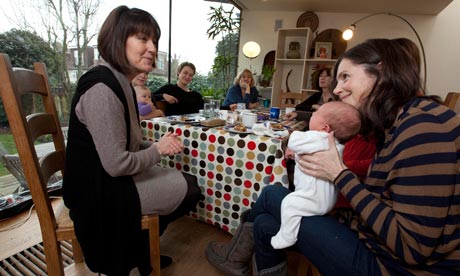The Deaconess Foundation seeks to shift public policy, mobilize community
members, and strengthen advocacy efforts related to children and youth.
Louis, had lost its
accreditation in 2012, and in 2013 it found itself
at the center of a school transfer debacle
that at one point saw dozens of white parents
from nearby suburbs yelling for Normandy’s
predominantly black young people to leave
the schools in their communities and “go
home.” In
brief, the summer of 2014 marked the very
public diagnosis of an unhealthy community
with suffering youth and racial inequity as
the most prominent symptoms.
It brought home the point that, just
as place and poverty are social determinants
of health, racial equity is an important indicator of our communities’ health. The foundation
envisions a community that values
the health and well-being of all children and
gives priority attention to the most vulnerable. The plan aims to shift public
policy, mobilize community members, and
strengthen advocacy efforts related to children
and young people. In 2015, Deaconess followed up
by establishing the Ferguson Youth Organizing
Fund, which allows other donors to invest
through Deaconess. To date, outside funding partners have been
as diverse as the Public Welfare Foundation,
the Ford Foundation, the NBA Players’ Association
Foundation, Casey Family Programs,
and Anheuser Busch InBev.
From nonviolent direct actions (including
being arrested with clergy leaders attempting
to enter the US Attorney’s office on the
anniversary of Michael Brown’s death) to
closed-door strategy meetings, Deaconess
staff members have engaged directly, taking
on coordinating roles with community
organizers, elected officials, law enforcement,
local clergy, civil rights activists, and
national funders.
It has engaged more than 2,200 citizens
and 100 subject matter experts in more than
60 public meetings, and it has marshalled
nearly 20,000 volunteer hours to explore
issues such as citizen-law enforcement relations,
municipal courts and governance,
racial and ethnic relations, regional disparities
in health, education, housing, transportation,
child care, and family and community
stability.
The commission’s nearly $1 million
budget was funded primarily by the State
of Missouri through economic development,
community service, and community
development block grant dollars. Funding was also provided by the Robert
Wood Johnson Foundation, Missouri Foundation
for Health, and Deaconess Foundation.
The Ferguson Commission report,
Forward Through Ferguson: A Path Toward
Racial Equity, was released on September 14,
2015.
Leading the commission gave Deaconess
the opportunity to influence the prioritizing
of policy recommendations, and we emphasized
the need to advance racial and health
equity, as well as to create policies that are supported by research and that will have generational
impact. Since the recommendations became public,
Deaconess has convened a group of community
organizing and advocacy organizations
to coordinate campaigns and public
actions to assure accountability for civic
leaders. In November 2015, we worked with
activists to host two public accountability
meetings where civic leaders including the
attorney general, the city mayor, legislators,
the Chamber of Commerce president, and
school superintendents pledged support
for Ferguson Commission calls to action.
In many ways, the Ferguson Commission
gave Deaconess an opportunity to learn
and explore its emerging approach to social
change in real time. Public testimony from
people directly affected assured robust community
engagement in policy development. He is president and CEO of Deaconess
Foundation, pastor of Saint John’s Church (The Beloved Community),
and co-chair of the Ferguson Commission.
